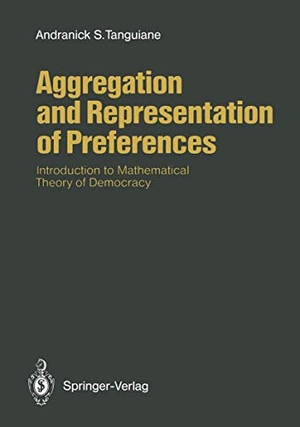Für statistische Zwecke und um bestmögliche Funktionalität zu bieten, speichert diese Website Cookies auf Ihrem Gerät. Das Speichern von Cookies kann in den Browser-Einstellungen deaktiviert werden. Wenn Sie die Website weiter nutzen, stimmen Sie der Verwendung von Cookies zu.
Cookie akzeptieren
Andranick S. Tanguiane
Aggregation and Representation of Preferences
- Springer Berlin Heidelberg
- 2011
- Taschenbuch
- 348 Seiten
- ISBN 9783642765186
Aggregation is the conjunction of information, aimed at its compact represen tation. Any time when the totality of data is described in terms of general ized indicators, conventional counts, typical representatives and characteristic dependences, one directly or indirectly deals with aggregation. It includes revealing the most significant characteristics and distinctive features, quanti tative and qualitative analysis. As a result, the information becomes adaptable for further processing and convenient for human perception. Aggregation is widely used in economics, statistics, management, planning, system analysis, and many other fields. That is why aggregation is so important in data pro cessing. Aggregation of preferences is a particular case of the
Mehr
Weniger
zzgl. Versand
in Kürze